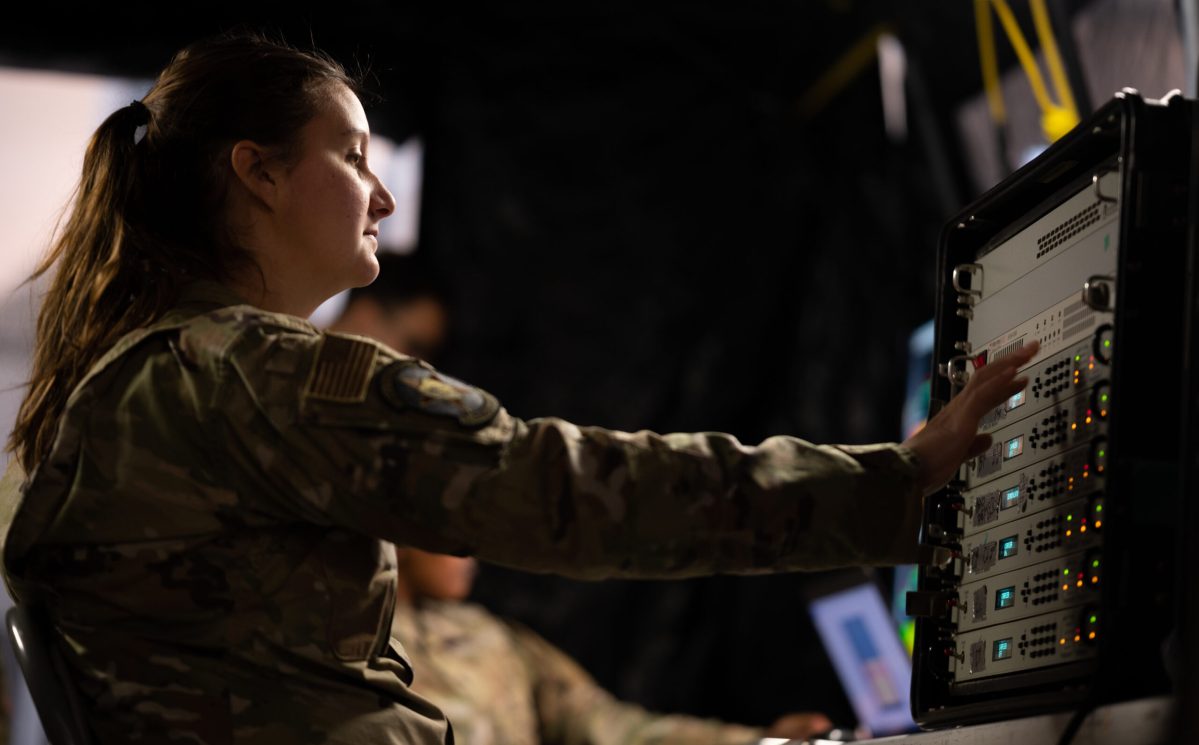WASHINGTON — The Pentagon has partially declassified some space electronic warfare technologies and exercises, a move seen as critical for enhancing U.S. Space Force training and fostering closer collaboration with allied forces.
Col. Christopher Fernengel, director of the Commander’s Action Group at the Space Force’s Space Operations Command, credited the Defense Department’s space policy office for leading the declassification efforts.
“They’re directing changes to declassify where it makes sense,” Fernengel said April 20 on a podcast hosted by the Mitchell Institute of Aerospace Studies.
The head of the Pentagon’s space policy office, John Plumb, has advocated for updates to the classification guidance to facilitate collaboration with allies and with the private sector.
Historically, space electronic warfare has been highly classified, Fernengel said. Just a few years ago, “everything was behind the green door at the ‘top secret special access’ program level,” he said. Most recently, “we saw much of the capability go from a top secret SAP level down to secret, or top secret.”
Space electronic warfare involves manipulating the electromagnetic spectrum, crucial for communication, navigation, and sensor data in space. It encompasses offensive actions like jamming or spoofing to hinder adversaries, alongside defensive measures to protect friendly space assets. Exercises often involve an “aggressor squadron” simulating enemy attempts to disrupt U.S. space systems electronically.
‘We can share more with coalition partners’
Lt. Col. C. Gene Adams, commander of the 527th Space Aggressor Squadron, underscored the benefits of lowering classification. “We can share more with coalition partners who have similar capabilities,” he said.
The policy changes streamline approvals, Adams said. “Counter-space approval activity packages” previously requiring Secretary of Defense sign-off are now delegated to colonels (O-6 level) in most cases, he explained.
This has led to increased international participation in exercises. Adams cited a recent electronic communications and data-sharing exercise, “Heavy Rain,” conducted with the U.S. Air Force, U.K., Australia, and France at Ramstein Air Base, Germany.
Fernengel emphasized the need for continued declassification efforts. “Bringing on more allies builds a more holistic electronic warfare enterprise,” he said. “We should not take our foot off the pedal” in continuing declassification efforts so more training opportunities open up with international partners.
Adams sees transparency as a deterrent. “Strategic deterrence is difficult without proper messaging,” he said. “Being able to work more closely with our partner nations will only make us more proficient and effective.”
